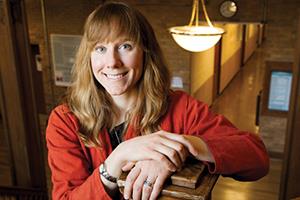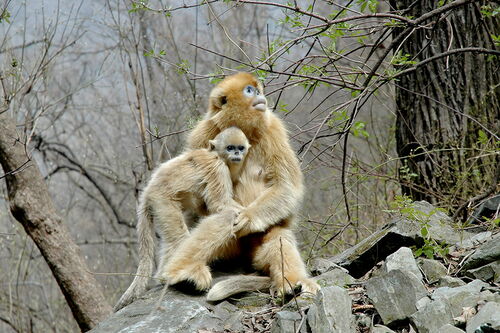Casting Light on an Ugly Problem

She shed light on a dark side of field research. Now LAS anthropologist Kathryn Clancy has been recognized by Nature magazine as one of their “10 people who mattered” in 2013.
It began with an ugly discovery. Clancy had always considered her own doctoral field research to be a “magical” experience, with long days gathering biological specimens followed by evenings of games and music, as she later recounted to the magazine. Years later, however, she learned that, to others, field work is a nightmare.
One day, a friend revealed that she had been sexually assaulted by a colleague at a field site. Clancy responded by posting similar, anonymous stories from colleagues on her Scientific American blog. That grew into a research project with three other colleagues to analyze the field experiences of other biological anthropologists.
In April 2013, Clancy and her team revealed the disturbing results of her study during an ethics symposium at a meeting of the American Association of Physical Anthropologists. Of 124 participants in a Web-based survey, she reported, 59 percent reported experiencing inappropriate sexual comments in the field, and 18 percent reported physical harassment or assault.
When Clancy’s team expanded the survey to include more than 600 respondents from all fieldwork disciplines, not just anthropology, the results were essentially the same: Young female graduate students were usually the targets, and older men—mostly postdoctoral researchers and professors—were usually the perpetrators. Many victims didn’t report the abuse for fear they would face a career setback. Others were told to keep quiet, and only rarely were reports of abuse resolved to the satisfaction of the victim.
Clancy acknowledges that the survey may have drawn unrepresentative numbers of harassment victims, but nonetheless, the anthropology community was shocked into action. The American Anthropological Association soon announced a zero-tolerance policy for sexual harassment, and other professional societies followed suit.
Clancy learned that the effects of sexual harassment linger for years, and the experience even affects victims’ future decisions and career moves. Some young researchers have left science because of their field experience, she told Nature magazine.
“Every time you try to do your science, you’re reminded of what happened,” Clancy says. “There’s no doubt in my mind, we are losing very good people.”








